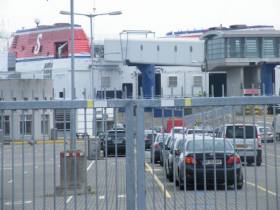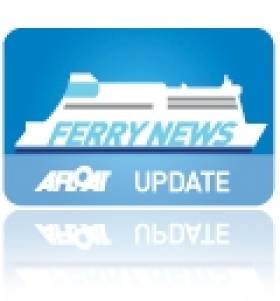Displaying items by tag: One Year On
At the ferry port of Dover, protesters have gathered to mark the first anniversary when P&O sacked hundreds of seafarers and staff.
Almost 800 people had lost their jobs when the ferry operator with routes from the UK to Ireland, France and the Netherlands, replaced them with agency staff on less than the minimum wage.
The move led to widespread protests at the time and criticism of the UK government.
P&O said the "changes" meant it was now serving customers "much better than ever before".
During the rally held in the Kent port, Mike Lynch general secretary of the Rail, Maritime & Transport (RMT) workers union, told the rally it was "obscene" that the company had faced no punishment for the sackings.
Substantial progress according to the UK government has been made on seafarer protection.
BBC News has more on the rally.
Accounts at Dún Laoghaire Harbour Must be Published, Says Senator
Financial accounts of Dún Laoghaire Harbour Company must be published and presented to the Oireachtas without delay, a former director of the company has said.
As The Irish Times reports, Independent Senator Victor Boyhan (see call for ferry return) who was a company director of the Dublin Bay harbour for 10 years, said the final 2017 accounts for the defunct company should have been published within six months of its dissolution.
The company was dissolved and control of the harbour was transferred to Dún Laoghaire Rathdown County Council last October,leaving the council with liabilities of almost €40 million as previously reported on Afloat..
Mr Boyhan has warned Minister for Local Government Eoghan Murphy that he and the Government could find themselves open to legal action if they saddle the local authority with this debt.
For more from the newspaper click here.
Afloat.ie adds it is just over five years ago since Stena Line's final ferry sailing on the seasonal-only service took place in September 2014 (see special News feature: Farewell to Stena's HSS, Ships Monthly, June 2015)
It was not until February of the following year that the operator finally confirmed the end of the historic Dun Laoghaire-Holyhead route by consolidating out of Dublin Port with an existing year-round service to the same north Welsh port.
Rosslare Europort Revisited by Car-Touring ‘Epsilon’ One-Year On
#EpsilonYear1 - Irish Ferries Dublin-Cherbourg route launched a year ago by ro-pax Cartour Epsilon as previously reported on Afloat.ie, made an en-route to Rosslare Europort last Monday having sailed from France, writes Jehan Ashmore.
The chartered Italian flagged ferry Epsilon (since renamed without her prefix) began the new year-round operated service in January 2014. The service is marketed as an economy class alternative to the operators Rosslare-France routes.
During last week's call to the Co. Wexford port both motorist-passengers and freight vehicles disembarked.
Such calls to the south-east ferryport will remain in place until the operator's cruiseferry, Oscar Wilde resumes routine Rosslare-Cherbourg sailings that reopens this day next month (25 February).
Last year as the then Cartour Epsilon, she had also covered 'Oscar's continental crossings to and from Rosslare (see report). This involved her standing in for Isle of Inishmore while on the Pembroke route.
The 2011 built Epsilon is scheduled to dock in Rosslare tomorrow morning. Again all traffic from the French route will be unloaded in addition to what is understood to be a contract to carry trade vehicles.
Having completed these duties, the 26,375 tonnes vessel will continue the final leg of the triangular route with a passage in ballast to Dublin Port but not arrival until 22.00.
Following this, Epsilon settles back on her weekday Dublin-Holyhead sailing roster (except on Mondays), hence her late arrival tomorrow night to the port.
Her role on the Welsh route had preceded the French service as she was first introduced on the Irish Sea route last December.
Since her double route debut, Epsilon has boosted capacity resulting in improved trading figures for Irish Ferries whose parent company is Irish Continental Group.





























































